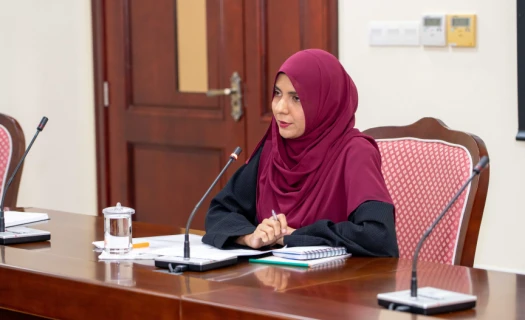Tue, 17 Jun 2025
|DHIVEHI
Minister Thoriq highlights progress in driving renewable energy
26 Jan 2025
|

Photo: PSM news
Efforts are underway to enhance renewable energy capacity in the Maldives through the installation of grid systems and battery energy storage solutions, according to the Minister of Climate Change, Environment, and Energy, Thoriq Ibrahim.
The minister revealed to local news that the current cable network in islands are outdated, necessitating significant upgrades to support ongoing renewable energy projects. These improvements, alongside the installation of battery storage systems, aim to address current limitations, with the existing network only allowing for 30 per cent renewable energy integration.
In 18 islands, work has commenced on installing battery systems, complemented by grid system enhancements in multiple areas. These projects, primarily funded through public sector investment, are designed to optimise energy storage and utilisation. The minister highlighted that energy stored in batteries will allow extended electricity supply during periods when solar energy is unavailable.
The Government has set an ambitious target to convert 33 per cent of the nation's energy consumption to renewable sources within the next five years. Since the start of the Administration, renewable energy capacity has increased from 53 MW to 70 MW, with a total requirement of 450 MW identified to achieve the target by November 2028.
Currently, renewable energy projects totalling 170 MW are at various stages of implementation, with an additional 50 MW expected to come online by the end of the year. These initiatives are expected to significantly reduce fuel costs and ease the financial burden on the state.
During the COP28 summit, the Government reaffirmed its commitment to transitioning to renewable energy, describing it as one of the most substantial green energy initiatives in the country’s history. The Administration views the shift as a critical step towards achieving energy independence and fostering economic sustainability.


Popular News




